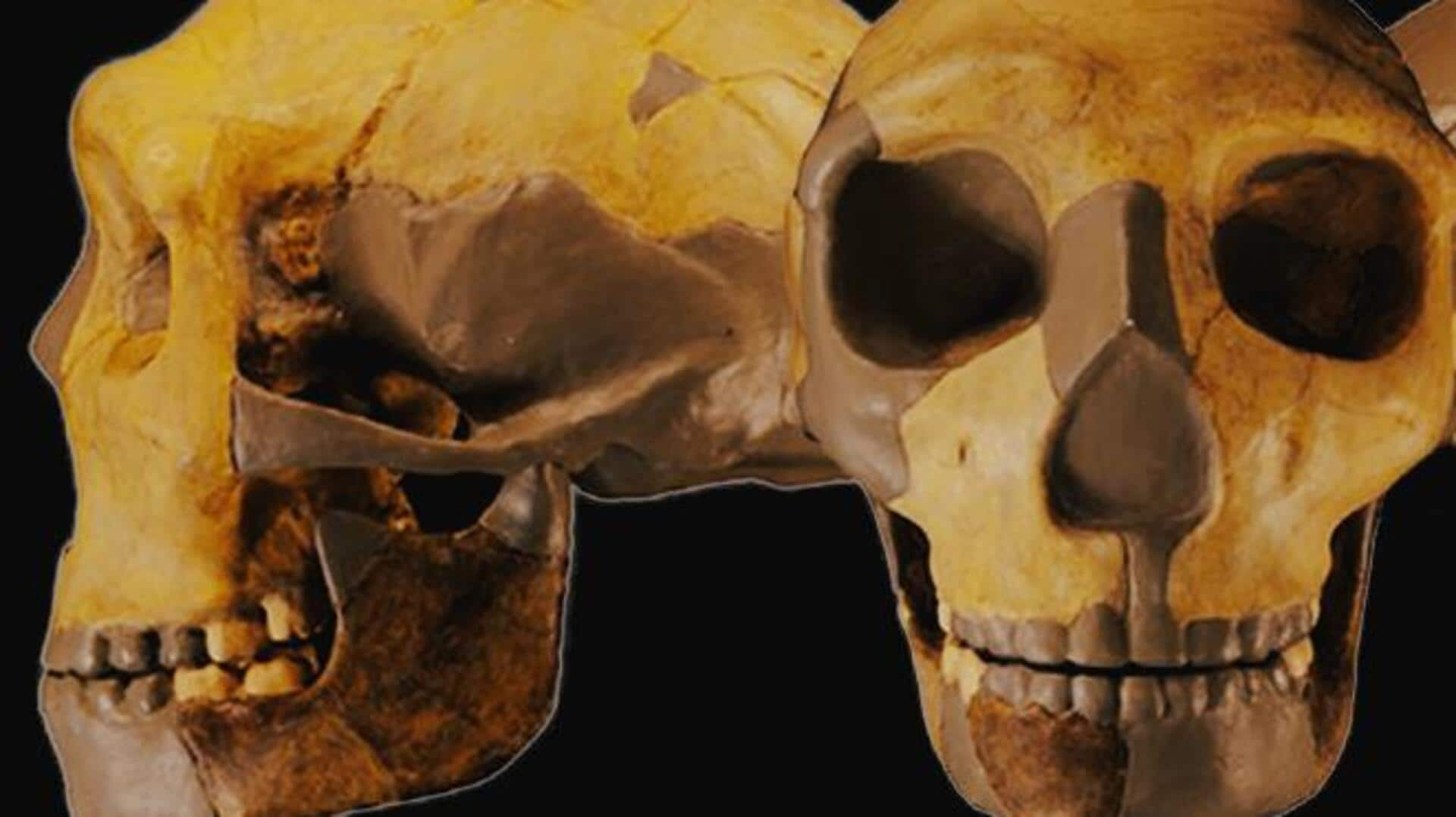
Mysterious fossil found in China complicates understanding of human evolution
What's the story
Scientists have discovered an ancient fossil in China that challenges our understanding of human evolution.
The team discovered the jaw, skull, and leg bones of this fossil, that's termed HLD 6, in Hualongdong, China.
However, the evidence doesn't resemble the lineages that led to Neanderthals, Denisovans, or modern humans, suggesting we need to make another addition to the human family tree.
Details
HLD 6 appears to exhibit both modern and primitive characteristics
Previous hominin fossils discovered in China have been hard to classify and are often seen as intermediate variations leading up to modern humanity.
However, HLD 6—estimated to belong to a 12- or 13-year-old—is different, with a mix of modern and primitive features.
Its face has modern human-like features, while its limbs, skull cap, and jaw "seem to reflect more primitive traits," per the study.
Information
The new fossil suggests three coexisting lineages in Asia
The unique combination of traits in the HLD 6 fossil supports the idea of three coexisting lineages in Asia: Homo erectus, Denisovan, and this newly discovered lineage "phylogenetically close" to us.
What Next?
Further research is required to validate theories
The discovery of this new lineage in China could have significant implications for our understanding of human evolution.
Scientists think it is possible that the last common ancestor of Homo sapiens and Neanderthals originated in southwest Asia and then spread worldwide.
In any case, more research is needed to confirm this theory and the place of the new lineage in our family tree.